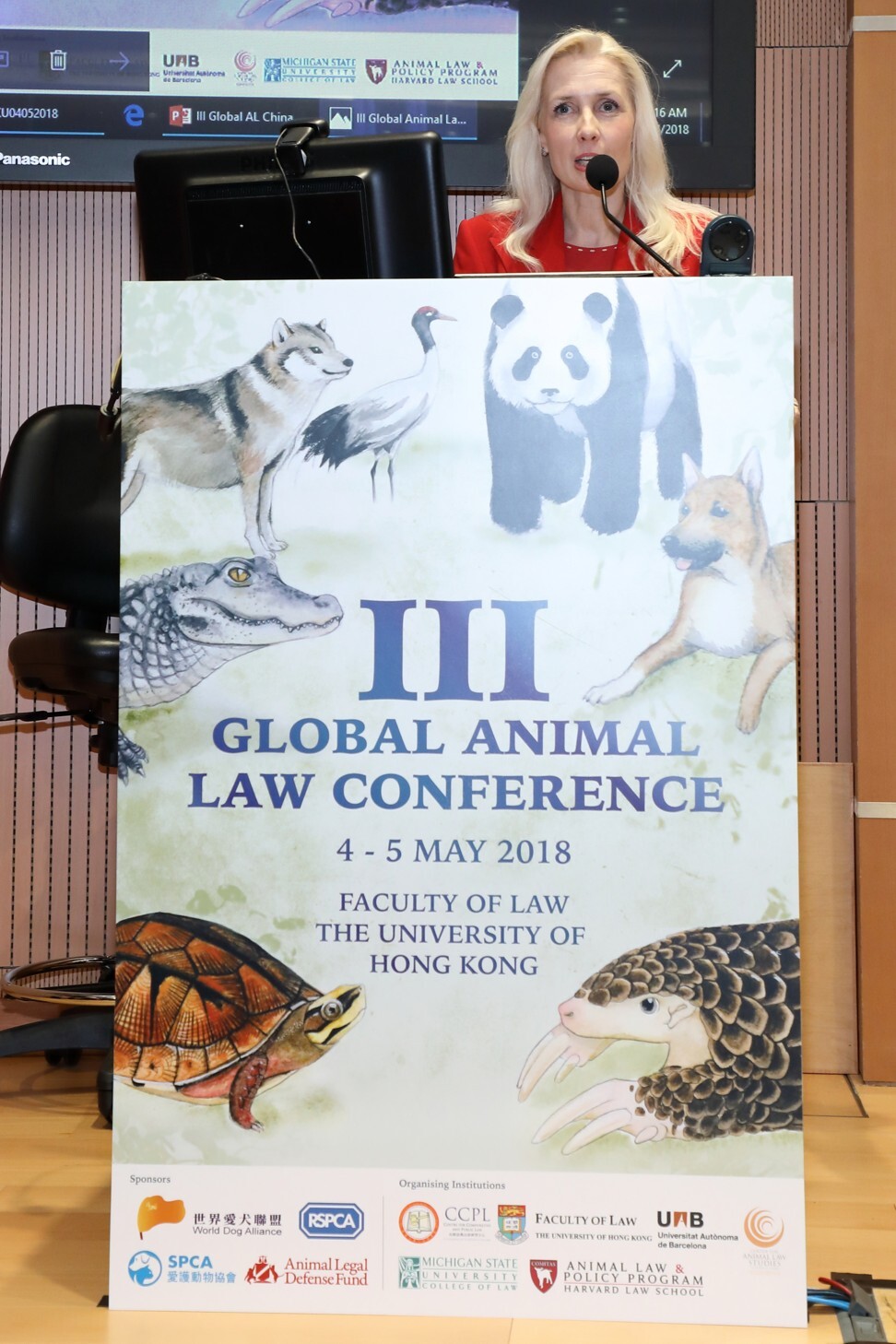
How the illegal trade in endangered wild animals could be curbed by a law change in Hong Kong
- A proposal by a legislator, law professor and NGOs to tackle wildlife offences under the Organised and Serious Crimes Ordinance could have a big impact
- Instead of targeting the human mules who smuggle the animals, the trafficking syndicates and crime bosses who employ them would come under investigation
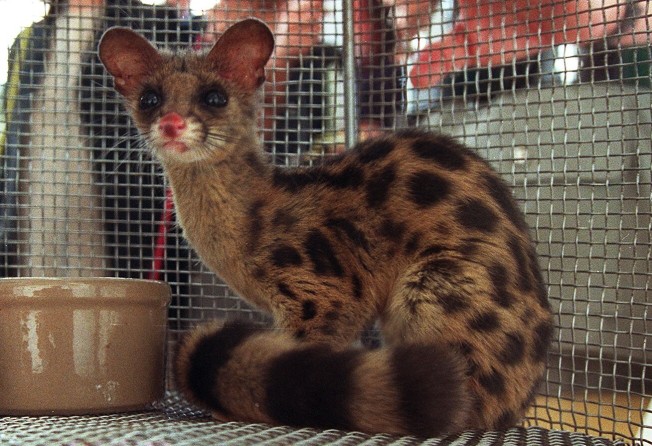
Seizures of smuggled wild animals are so big in Hong Kong that they are measured in the tens of tonnes. In 2019 alone, according to government figures, 30 tonnes of endangered species – live birds, insects, reptiles, fish and mammals – were seized. The figures exclude animal parts such as ivory and pangolin scales, and the wood of endangered trees.
Despite the huge volumes involved, law professor Amanda Whitfort says the situation is “the elephant in the room that nobody wants to see”.
“Wildlife crime in Hong Kong has been severely under-punished,” says the barrister and environmental law expert at the University of Hong Kong.
“Ridiculously low sentences have been handed out; they do not act as deterrents. And we have never, ever had a prosecution in Hong Kong that goes beyond the mule. We only get the guy who got paid a few hundred dollars, along with his ticket to Hong Kong. He is immediately replaced with someone else.”

However, hope may be on the horizon. On November 2, Whitfort, with Hong Kong legislator Elizabeth Quat and NGOs Bloom, WildAid, WWF and ADM Capital Foundation, presented a white paper to the Hong Kong Legislative Council suggesting the inclusion of wildlife offences under the Organised and Serious Crimes Ordinance (OSCO). Quat intends to submit a private member’s bill on the subject this year.
Whitfort says that despite an amendment in 2018, the primary law currently regulating wildlife trade – the Protection of Endangered Species of Animals and Plants Ordinance (Cap 586) – does not give investigators the legal powers necessary to identify and go after the international smuggling syndicates that traffic wildlife through Hong Kong, or the people who run them.
Increasingly harsh sentences for wildlife crime have been handed down recently, but, again, it is the people caught carrying the illegally traded wildlife – the mules – who are sentenced. They are doing more jail time, but it is business as usual for the smuggling syndicates and their bosses, and the number of wildlife seizures is increasing.
Whitfort says that when a suspected wildlife trafficker is apprehended in Hong Kong, the trail usually goes cold.
“The suspect has the right to remain silent, and so he refuses to answer questions and provide information about who hired him to move the contraband into and through Hong Kong,” she says. “Investigators do not routinely pursue the financial investigations necessary to find out who is behind the shipment. The trail of investigation stops, the result is a light sentence – focused on the mule.”
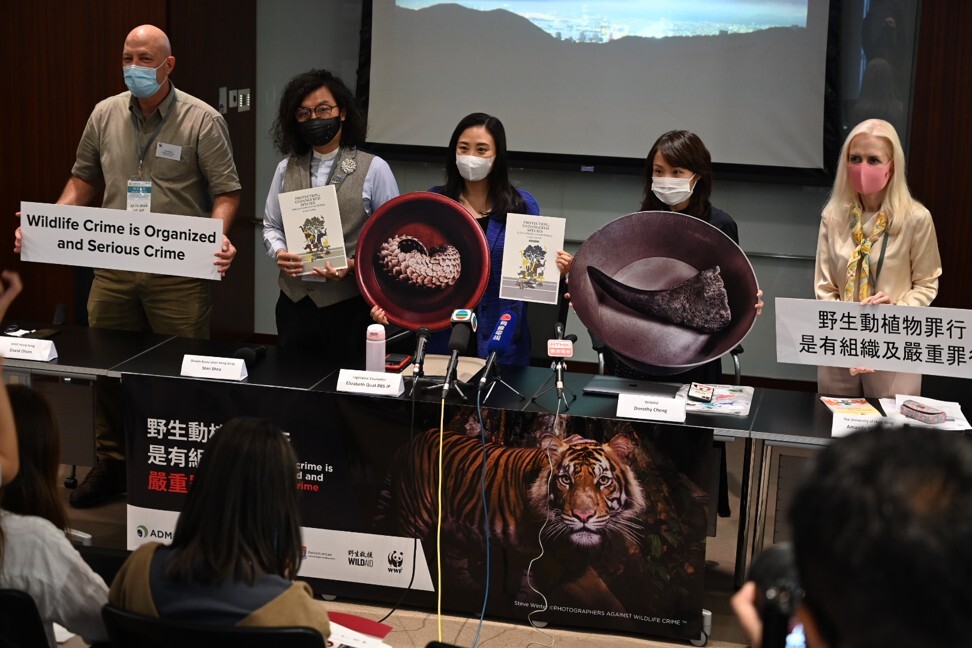
Treating wildlife crime as an organised and serious crime under the law would change that, says Whitfort, because coercive powers of investigation currently reserved for serious crimes such as drugs and weapons trafficking could be used.
Investigators could use court orders to compel suspected wildlife smugglers to answer questions and force them to produce material, such as business records kept in Hong Kong or elsewhere, which could help establish the chain of people involved. Police would also have options if the trail led abroad.
“Hong Kong has agreements for co-investigation with over 30 other governments, so the transnational nature of the crime can be combated through international cooperation in the tracing of assets and sharing of seized proceeds,” says Whitfort.
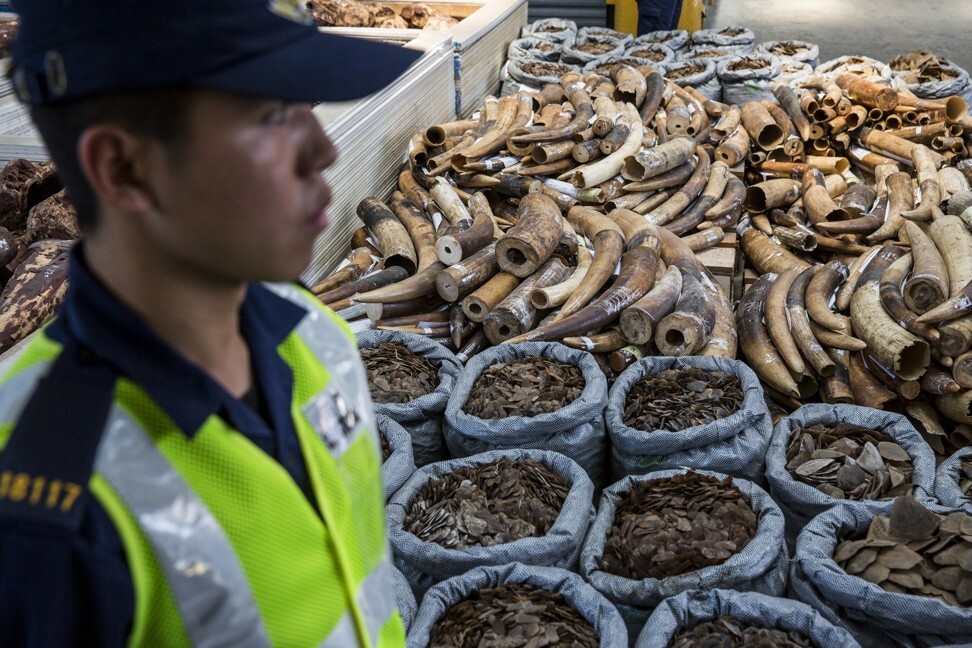
With OSCO powers, investigators would be able to trace international money flows and restrain assets, such as money held in bank accounts related to wildlife crimes. Assets could be confiscated if there is a conviction, Whitford adds, which would hit the people in charge of trafficking.
“Hong Kong investigators [would be able to] build up a picture of the international smuggling syndicates, stop the criminals using our city as a gateway to [China] and other parts of Asia, and stop Hong Kong playing a key role in the international smuggling of wildlife.”
Despite years of campaigning by NGOs and scientists, wildlife crime has still not been included under the OSCO.
Hong Kong must stop pretending what we do here is not impacting the rest of the planet. We are taking and taking wild species – as pets, as food, for medicine, for decorative arts, for trade – without any regard for the impact our actions have
“Fundamentally, local enforcement authorities are not treating wildlife crimes seriously,” says Sam Inglis, wildlife programme manager at ADM Capital Foundation, a philanthropic organisation with a focus on environmental and social challenges in Asia.
Whitfort notes that some critics say the organised crime law is only intended to deal with the illegal activities of triad societies.
“That’s incorrect,” she says. “You don’t have to be a triad organisation to be the subject of an organised and serious crime investigation. Serious crimes can be organised without the involvement of triads and meet the OSCO criteria.”
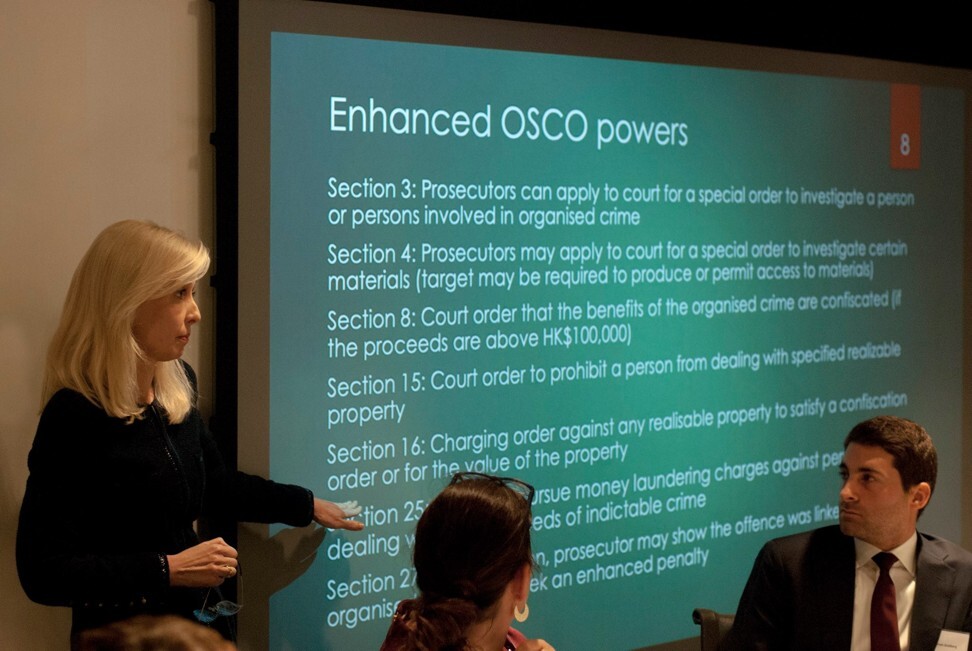
Another reason for not using the OSCO to tackle wildlife crime, she has been told, is that it is neither organised nor transnational. To Whitfort, this defies common sense.
“How do you get nine tonnes of sandalwood, smuggled here in a container from one side of the world to the other, without it being organised and transnational? It’s a tree only found in India, where there is zero legal export.”
Whitfort adds that offences against animals and nature have long been seen as “victimless” and thus not a priority for law enforcement. But known criminals have been involved in the wildlife trade.
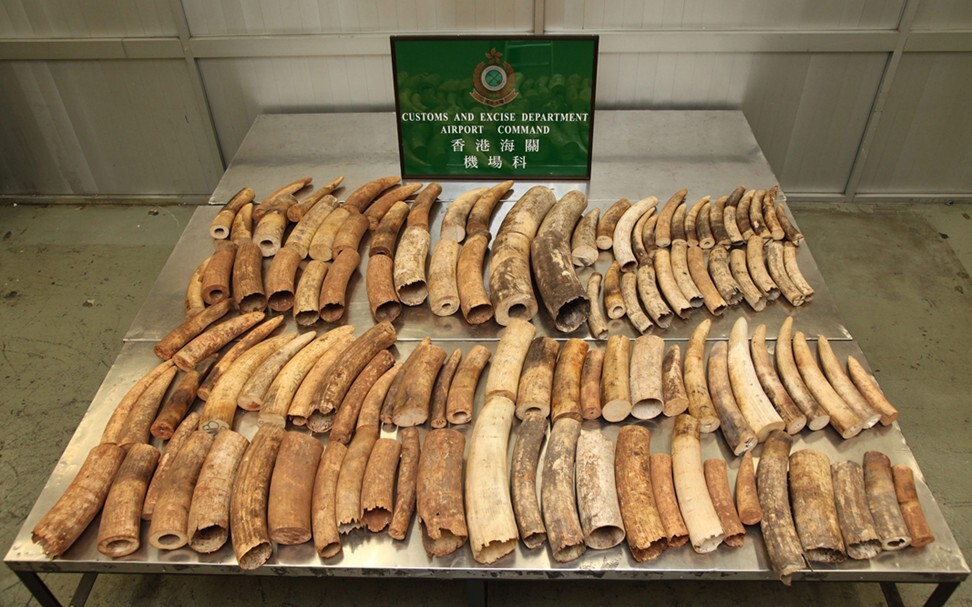
In Africa, militias and rebel armies, such as the Janjaweed in Sudan and Chad, and the Democratic Forces for the Liberation of Rwanda, both with a long record of massacres, mass rapes, torture and the use of child soldiers, harvest and deal in ivory.
Huge quantities of rosewood are smuggled through Hong Kong, and research into the trade has found that up to 90 per cent of African rosewood is “conflict timber”.
The US Department of the Treasury last year accused the Zhao Wei crime network of being involved in the ivory trade, human and drug trafficking, and in child prostitution. Its alleged kingpin, Zhao Wei, a Macau native, lives in Laos and runs a casino. Two Hong Kong companies were registered in his name.
Meanwhile, the number of diseases jumping from animals to humans is rising. Scientists estimate there are tens of thousands of unknown viruses, carried by wild animals, that can potentially affect people in a process called zoonosis.
“Between 2015 and 2019, 172,000 live birds, 123,500 mammals and 3.9 million reptiles were imported into Hong Kong,” says Inglis, “In Hong Kong, birds have historically posed a zoonotic risk, such as parrot fever and avian flu.”
Whitfort says one more excuse for not using the OSCO to tackle wildlife crime is that there is no longer a need because of a 2018 amendment to Cap 586.
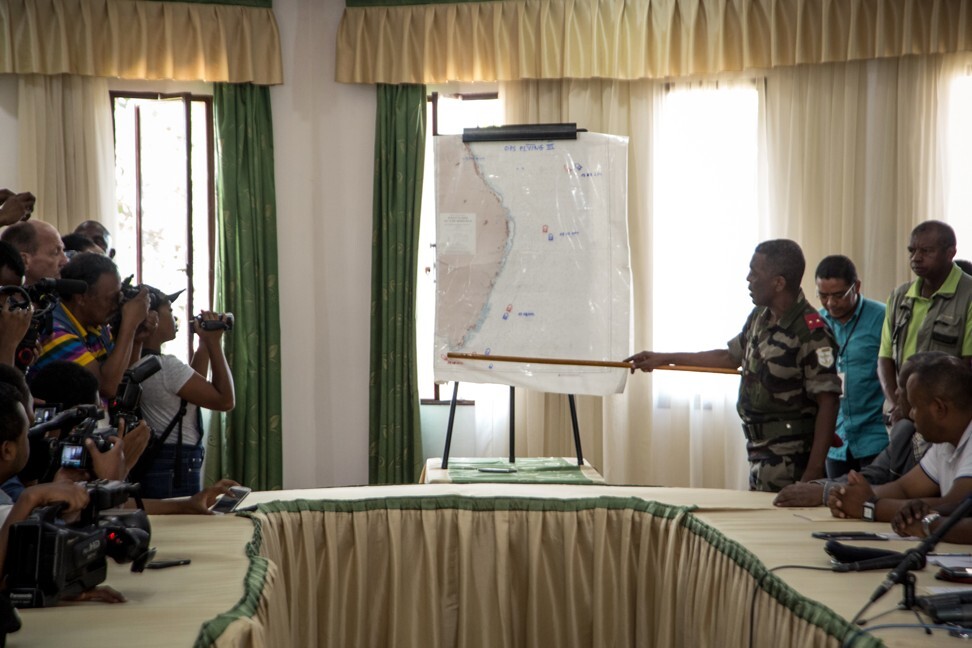
The amendment allowed for smugglers and traders in Convention on International Trade in Endangered Species (Cites) Appendix 1 species (such as elephants, tigers, rhinos) and parts or products derived from them can receive 10 years’ imprisonment and a fine of HK$10 million. Those dealing in Appendix II and III species, such as thresher sharks, manta rays, and European eels, and parts or products derived from them, can be sentenced to seven years’ jail and fined HK$1 million.
“But that has not worked,” Whitfort says. “We still see low sentences. The maximum so far was three years. Only the mules are targeted, and the Agriculture, Fisheries and Conservation Department does not have the tools to get the necessary intel to investigate further.
“To identify the syndicates behind the crime and freeze their assets, a lot of intel is required, usually related to financial transactions. This intel, however, cannot be extracted from witnesses unless OSCO powers are applied. And wildlife crime is not a specified crime under OSCO – so it’s a Catch-22.”
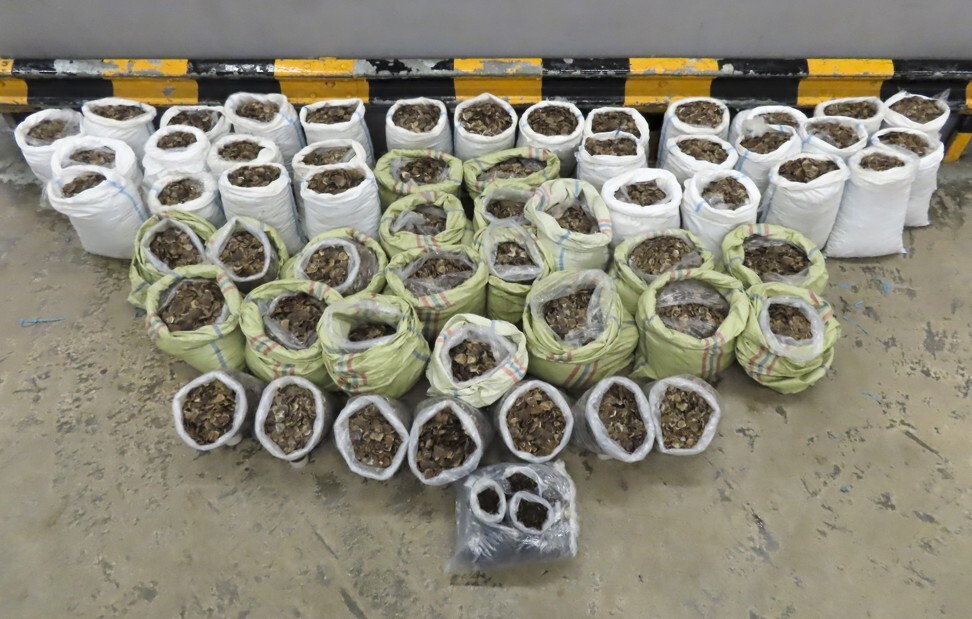
OSCO powers can be activated, however, if wildlife smugglers are investigated for money laundering, says Whitfort, and the authorities have touted this as the solution that would make inclusion of wildlife crime in the OSCO irrelevant. The problem, says Whitfort, is that nobody seems interested in pursuing money laundering charges in wildlife cases.
Inglis agrees. “In the past five years there has not been one prosecution for money laundering in any of over 1,400 wildlife cases,” he says. Even in record-breaking cases, such as the seizure of 7.2 tonnes of ivory in 2017, and 8.3 tonnes of pangolin scales and 2.1 tonnes of ivory in 2019, there were no prosecutions.
For Whitfort, cleaning up Hong Kong’s reputation is not just a question of amending laws; Hongkongers must become fully aware of the size of the city’s environmental footprint.
Whitfort says: “Hong Kong must stop pretending what we do here is not impacting the rest of the planet. We are taking and taking wild species – as pets, as food, for medicine, for decorative arts, for trade – without any regard for the impact our actions have on the countries these animals and plants are taken from, and the extinctions we are responsible for.”